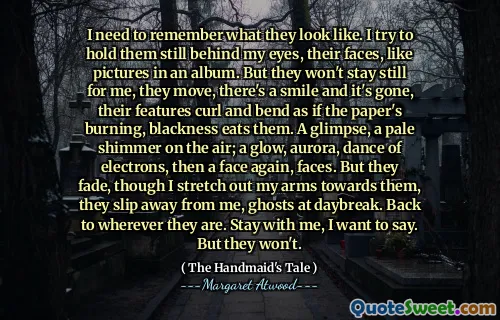She who does not hesitate is lost.
In Margaret Atwood's "The Handmaid's Tale," the phrase "She who does not hesitate is lost" suggests the complexity of decision-making in a dystopian society. It underscores the struggle of individuals facing oppressive systems where choices often lead to dire consequences. This hesitation may stem from fear, uncertainty, or the overwhelming weight of societal expectations, highlighting that inaction can sometimes be a safer path than making a decisive but potentially dangerous choice.
The quote encapsulates the tension between autonomy and survival, emphasizing the importance of thoughtfulness in the face of coercion. It reflects the inner turmoil of the characters as they navigate their identities and the roles imposed on them. In a world where every decision carries the risk of punishment, the act of hesitating becomes a form of resistance, allowing individuals to reclaim agency in a context designed to strip them of it.






